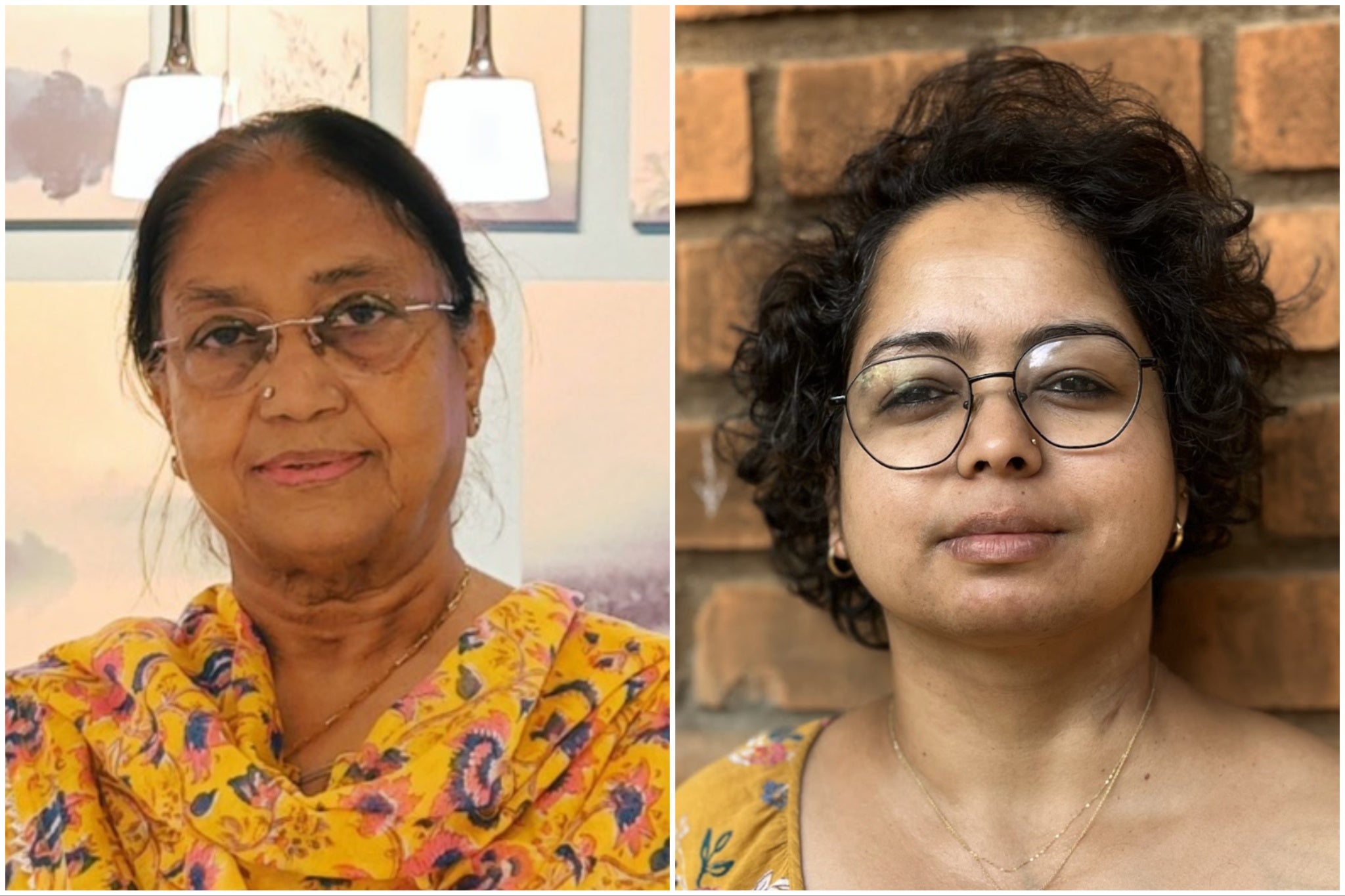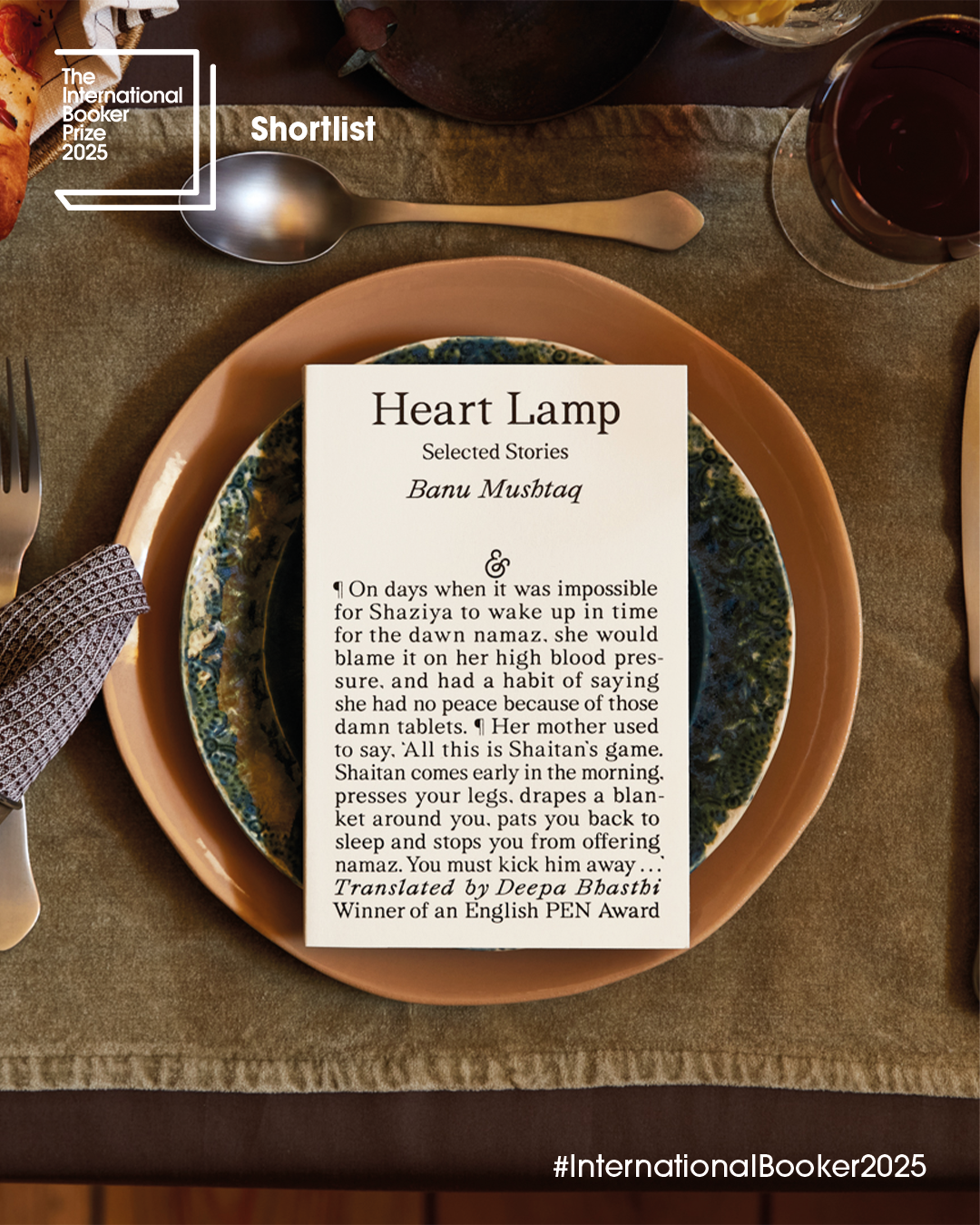ARTICLE AD BOX
Indian author Banu Mushtaq has been announced as the winner of the International Booker Prize 2025 for her short story collection, Heart Lamp.
The lawyer and activist will split the £50,000 prize money with Deepa Bhasthi, the translator of the book, which marks the first win for a title translated from Kannada, a major language spoken by an estimated 65 million people.
Heart Lamp features 12 short stories about the experiences of Muslim women living in southern India. They feature the lives of stoic mothers and opinionated grandmothers, as well as cruel husbands and resilient children. Mushtaq is the second Indian author to be awarded the prize, with Geetanjali Shree winning with Tomb of Sand in 2022, and Bhasthi is the first Indian translator.
The news was announced at a ceremony, celebrating the best translated works of long-form fiction or collections of short stories from across the globe and published in the UK, held in the Turbine Hall at London’s Tate Modern on Tuesday (20 May).
“My stories are about women – how religion, society, and politics demand unquestioning obedience from them, and in doing so, inflict inhumane cruelty upon them, turning them into mere subordinates,” Mushtaq said of the collection.
“The daily incidents reported in media and the personal experiences I have endured have been my inspiration. The pain, suffering, and helpless lives of these women create a deep emotional response within me, compelling me to write.”
At a time of escalating tension between India and Pakistan, with India scrutinised for its treatment of Muslim minorities, Bhasthi said she took extra care to immerse herself in the world of the subjects of the book.

“I was very conscious of the fact that I knew very little about the community she [Mushtaq] places her stories in,” she said.
“Thus, during the period I was working on the first draft, I found myself immersed in the very addictive world of Pakistani television dramas, music by old favourites like Nusrat Fateh Ali Khan, Ali Sethi, Arooj Aftab and others, and I even took classes to learn the Urdu script. I suppose these things somehow helped me get under the skin of the stories and the language she uses.”
Max Porter, chair of the judging panel and author of the bestselling novel, Grief is the Thing with Feathers, called the book a “radical translation”, which comes at a time when “Islamophobia is such an important [issue]”.
“I think it’s exciting to choose a book about Muslim life,” he said, adding that the book did not play into tropes about Muslim women being “oppressed”.

“I don't think that it's about Muslim women being oppressed. It is a component of some of the stories, but I wouldn't say that's what it's about,” he told The Independent at a press briefing.
“Most of these stories contain accounts of ingenuity, at an emotional or practical level. They're about solidarity and relationships. They're not a portrayal of the downtrodden. They are an account of resilience, bravery, wit. They're satirical, there's a great lightness of touch. I think they will challenge Western stereotypes about Muslim life in the most beautiful and exciting way.”
The book was also selected for its unique translation, which is described as one that “celebrates the movement from one language into another” and “contains a multiplicity of Englishes”.
“Heart Lamp is something genuinely new for English readers,” said Porter. “A radical translation which ruffles language, to create new textures in a plurality of Englishes. It challenges and expands our understanding of translation.
“These beautiful, busy, life-affirming stories rise from Kannada, interspersed with the extraordinary socio-political richness of other languages and dialects. It speaks of women’s lives, reproductive rights, faith, caste, power and oppression.”
The International Booker Prize began life in 2005 as a biennial prize recognising an author’s contribution to world literature. At the time there were no requirements that the book be published in a language other than English. The winners were Ismail Kadare, Chinua Achebe, Alice Munro, Philip Roth, Lydia Davis and László Krasznahorkai.
The rules changed in 2015, and it has since been awarded annually for a work of fiction that is originally written in another language and then translated into English. A number of its winners, including Han Kang and Olga Tokarczuk, have gone on to win Nobel Prizes in Literature.








 English (US) ·
English (US) ·